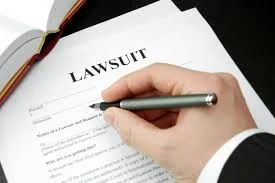
In personal injury cases, calculating damages is essential to determine the compensation you deserve. Damages refer to the financial losses and non-financial impacts you experience due to your injury. Whether you’ve been in a car accident, suffered a slip-and-fall, or experienced medical malpractice, knowing how to calculate damages can help you secure fair compensation.
In this article, we’ll explain the different types of damages in personal injury cases and provide a step-by-step guide on how to calculate them accurately.
What Are Damages in Personal Injury Cases?Damages in personal injury cases are the legal compensation awarded to a plaintiff who has been injured due to the negligence or intentional actions of the defendant. The purpose of damages is to make the injured party "whole" again by reimbursing them for their financial losses and helping them cope with the physical and emotional suffering they’ve endured.
There are two main types of damages in personal injury cases: compensatory damages and punitive damages. Let’s dive into each of these.
Compensatory DamagesCompensatory damages are designed to reimburse the plaintiff for their actual losses resulting from the injury. These damages can be divided into two categories: economic and non-economic damages.
**Economic Damages**
Economic damages are quantifiable losses that have a direct monetary value. These include expenses and lost income that can be easily calculated with receipts, bills, and financial records. Common examples of economic damages are:
• **Medical Bills**: All expenses related to treating your injury, such as hospital stays, doctor visits, surgeries, medications, physical therapy, and rehabilitation. • **Lost Wages**: Compensation for the income you’ve lost because you couldn’t work while recovering from your injury. This can include both wages and benefits like sick days or vacation time. • **Property Damage**: If your personal property was damaged during the incident, such as in a car accident, you may be compensated for repair or replacement costs. • **Future Medical Costs**: If your injury requires ongoing treatment, you may be entitled to future medical expenses, including surgeries, therapy, and medications.
**Non-Economic Damages**
Non-economic damages are more subjective and harder to quantify because they deal with the pain, suffering, and emotional toll of the injury. However, they are no less important in ensuring that the injured party is compensated for their hardships. Common types of non-economic damages include:
• **Pain and Suffering**: Compensation for the physical pain and discomfort caused by your injury. This can also include emotional suffering, such as depression, anxiety, and post-traumatic stress disorder (PTSD). • **Loss of Enjoyment of Life**: If your injury prevents you from enjoying activities or hobbies you once loved, you may be entitled to compensation for the loss of enjoyment of life. • **Emotional Distress**: This includes the psychological impact the injury has had on you, such as anxiety, depression, or stress. Emotional distress can be significant in cases involving severe or permanent injuries. • **Loss of Consortium**: If your injury impacts your relationship with your spouse, such as through a loss of intimacy or companionship, they may be entitled to damages for the loss of consortium.
Punitive damages are not awarded in every personal injury case. These damages are intended to punish the defendant for particularly reckless, malicious, or egregious behavior and to deter others from committing similar actions. Unlike compensatory damages, which are meant to compensate the plaintiff, punitive damages are meant to serve as a form of punishment.
Punitive damages are typically reserved for cases where the defendant’s actions were so extreme that they warrant extra punishment. For example, in cases of intentional harm, gross negligence, or severe misconduct, punitive damages may be awarded.
However, not all cases will qualify for punitive damages, and they are usually only awarded in cases where the defendant’s actions were deemed particularly harmful. A court will consider the defendant’s conduct, the harm caused, and other relevant factors before awarding punitive damages.
Economic damages are the easier of the two to calculate because they have a direct monetary value. To calculate your economic damages, you need to gather all the documentation related to your injury. This includes:
• **Medical Bills**: Collect all bills related to your treatment, including hospital bills, doctors fees, surgery costs, physical therapy, prescription medications, and future medical care that you might need. • **Lost Wages**: Calculate the income you’ve lost due to your injury by documenting the time youve missed from work and any potential future loss of earnings if your injury has long-term effects. • **Property Damage**: Get repair estimates or receipts for the replacement of damaged property, such as your vehicle, electronics, or personal items.
Once you’ve gathered all relevant documents, you can add up the total value of your economic damages.
 Calculating Non-Economic Damages
Calculating Non-Economic DamagesUnlike economic damages, non-economic damages are harder to calculate because they are subjective. There is no set formula for calculating pain and suffering, emotional distress, or loss of enjoyment of life. However, there are a few common methods lawyers use to determine these damages: • **Multiplier Method**: This is one of the most common ways to calculate non-economic damages. In this method, the total amount of economic damages is multiplied by a factor, usually between 1.5 and 5, based on the severity of the injury. For example, if your economic damages total $100,000, and your lawyer uses a multiplier of 3, your non-economic damages would be $300,000. • **Per Diem Method**: This method assigns a daily value to your pain and suffering. For example, if you’re suffering from constant pain, you might receive a set amount of money for each day you experience that pain. If your injury lasts for six months and you receive $200 per day, you’d be entitled to $36,000 in non-economic damages.
There is no exact science to calculating non-economic damages, and the amount will depend on factors such as the severity of your injury, the long-term impact on your life, and the defendant’s conduct. Working with a lawyer who specializes in personal injury law is crucial in ensuring these damages are calculated correctly.
The Role of Insurance in Damage CalculationsIn many personal injury cases, the defendant’s insurance company will be responsible for paying the damages. Insurance companies will typically assess the claim and determine the amount of compensation they are willing to offer based on the damages incurred.
However, it’s important to understand that insurance companies often try to minimize the amount they pay out. They may offer you a settlement that doesn’t fully cover your damages or may challenge certain aspects of your claim. That’s why it’s essential to have an experienced personal injury lawyer by your side to negotiate with the insurance company and fight for the compensation you deserve.
Hiring a Personal Injury Lawyer to Help Calculate DamagesCalculating damages in a personal injury case can be a complex process, especially when it comes to non-economic damages. That’s why hiring an experienced personal injury lawyer is crucial to ensure you receive fair compensation.
A lawyer will help you gather the necessary evidence, calculate both economic and non-economic damages, and negotiate with insurance companies on your behalf. If necessary, your lawyer can also take your case to court to fight for the maximum possible damages.
In many cases, personal injury lawyers work on a contingency fee basis, meaning you only pay if you win the case. This arrangement makes it easier for injury victims to seek legal help without worrying about upfront costs.
ConclusionCalculating damages in personal injury cases is a vital step in ensuring you receive fair compensation for your injuries. By understanding the different types of damages—economic and non-economic—you can better assess the impact of your injury and the compensation you may be entitled to. Hiring an experienced personal injury lawyer will help you navigate this process and ensure that you get the best possible outcome for your case.
Subscribe to our newsletter and never miss an update.
Get the latest posts delivered straight to your inbox.

Senior Contributor
Kusum Singh is passionate about impactful storytelling. With a unique voice and deep insights, they turn everyday stories into compelling reads that resonate and inform.
Read Full Bio
By Ravi Raj
20 Dec 2025

By Ravi Raj
26 Dec 2025

By Ravi Raj
02 Jan 2026

By Ravi Raj
27 Dec 2025

By Ravi Raj
22 Dec 2025

By Kusum Singh
27 Dec 2025

By Kusum Singh
23 Dec 2025

By Ravi Raj
30 Dec 2025

By Ravi Raj
22 Dec 2025

By Ravi Raj
02 Jan 2026

By Ravi Raj
02 Jan 2026

By Ravi Raj
28 Dec 2025